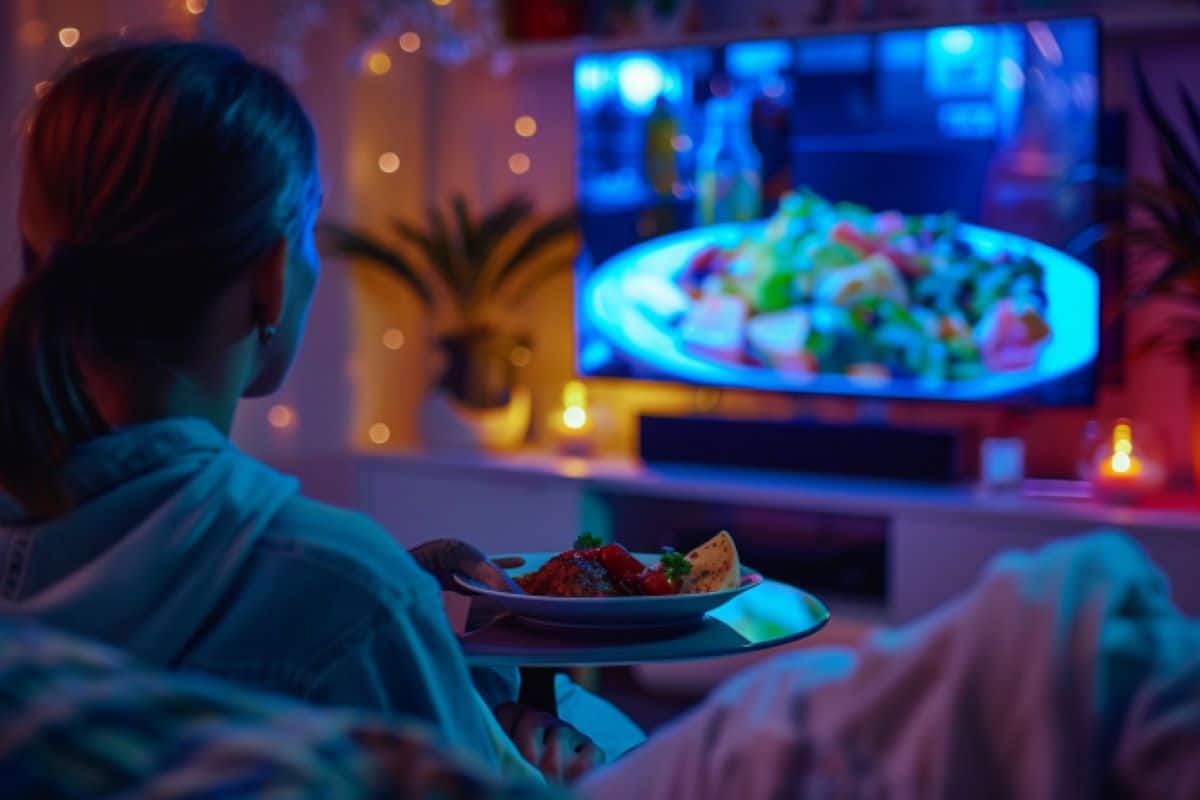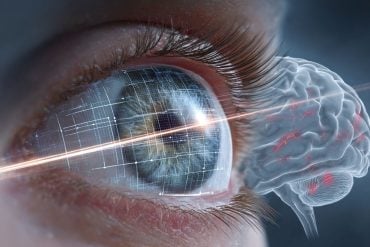Summary: Distractions during meals, such as watching videos or playing games, can lead to decreased enjoyment and satisfaction, triggering compensatory overconsumption of pleasurable activities later.
This phenomenon, termed “hedonic compensation,” suggests that individuals seek to fulfill their unmet enjoyment quota by indulging in other pleasurable activities.
Key Facts:
- Distracted eating leads to lower enjoyment and satisfaction during meals.
- Decreased enjoyment triggers compensatory overconsumption of pleasurable activities later.
- Hedonic compensation may extend beyond eating to other enjoyable activities.
Source: APA
If you tend to do other things or get distracted while eating dinner, you may be running the risk of over-consuming everyday pleasures later, possibly because the distraction caused you to enjoy yourself less, according to research published by the American Psychological Association.
The study looked at how distraction affects “hedonic consumption,” or buying and using products and experiences because they make us feel good and not necessarily because we need them.

“On any given day, a person may take great pleasure from one or more of these activities, yet people often consume more hedonic goods than they want or than is good for them,” said lead author Stephen Lee Murphy, PhD, of Ghent University.
One reason for this overconsumption may be distraction, according to Murphy. When people are distracted while engaged in a hedonic activity, research suggests they are likely to experience less enjoyment from it than if they were fully focused.
That may lead to feelings of dissatisfaction and drive more consumption to compensate for that shortfall.
The research was published in the Journal of Personality and Social Psychology.
To better understand the role of distraction in overconsumption, the researchers first conducted an experiment involving 122 participants (mostly female and mostly between the ages of 18 and 24) who reported on how much they expected to enjoy their lunch before eating it.
They were then asked to eat their lunch under one of three conditions: no distraction, moderate distraction (watching a video), and high distraction (playing Tetris). After lunch, participants reported on their actual enjoyment, satisfaction, desire for further gratification and amount consumed. They also reported on their snacking later in the day.
Participants who ate while distracted reported lower enjoyment and satisfaction, which was associated with increased snacking afterward and a more general desire for further gratification.
The researchers believe that this proposed effect, which they called “hedonic compensation,” likely applies to other activities beyond eating. For example, people who are distracted while watching a movie or playing a game may be more likely to engage in additional consumption (e.g., checking social media) to compensate for a diminished enjoyment of the original activity.
The researchers also followed 220 participants aged 18 to 71 (again mostly female) for a week to investigate this broader effect, beyond food. Participants filled out seven brief surveys per day via their smartphones regarding their hedonic consumption, distraction and satisfaction.
As with the food-based experiment, researchers found that when people were distracted during consumption, they were likely to enjoy a product less than they hoped, felt less satisfied, and experienced an elevated need for further gratification.
“Overconsumption often results due to a lack of self-control,” said Murphy.
“However, our findings suggest overconsumption may also often be driven by the simple human desire to reach a certain level of enjoyment from an activity. When distraction gets in the way, it’s likely we may try to compensate by consuming more.”
Murphy and his colleagues plan to conduct further research to replicate and confirm the existence of a hedonic compensation effect. If additional research confirms the effect, they have plans to apply interventions that could help people pay more attention to their consumption experiences in an effort to lower the likelihood of overconsumption.
“By understanding the key drivers of hedonic overconsumption, we can develop strategies to help prevent its occurrence,” said Murphy.
About this neuroscience and hedonic consumption research news
Author: Rosie Falodun
Source: APA
Contact: Rosie Falodun – APA
Image: The image is credited to Neuroscience News
Original Research: Closed access.
“Underwhelming Pleasures: Toward a Self-Regulatory Account of Hedonic Compensation and Overconsumption” by Stephen Lee Murphy et al. Journal of Personality and Social Psychology
Abstract
Underwhelming Pleasures: Toward a Self-Regulatory Account of Hedonic Compensation and Overconsumption
Hedonic overconsumption (e.g., overconsumption of gratifying behaviors, e.g., eating, gaming) is common in daily life and often problematic, pointing to the need for adequate behavioral models.
In this article, we develop a self-regulatory framework proposing that when an actual consumption experience falls short of hedonic expectations—such as when being distracted—people will want to consume more to compensate for the shortfall.
In a preliminary meta-analysis, a small-scale field experiment on distraction during lunch and subsequent afternoon snacking (Study 1), and a preregistered experience sampling study (Study 2) involving more than 6,000 consumption episodes in everyday life across multiple consumption domains, we investigated the predictions from our hedonic compensation model.
There was clear and consistent evidence across studies and analyses for the prediction that distraction during consumption compromises the actual enjoyment of a given consumption experience.
Both empirical studies yielded consistent evidence for a positive association between actual enjoyment and consumption satisfaction but inconsistent and weaker evidence for the expected role of actual-expected enjoyment discrepancies for this part of the model.
There was also consistent evidence for the expected negative association between consumption satisfaction and the need for further gratification. Finally, there was moderate and inconsistent support linking the need for further g
ratification to subsequent consumption across Study 1 (amount and frequency of snacking in the afternoon) and Study 2 (shorter duration to subsequent consumption).
Taken together, the present framework provides initial support for the proposed link among compromising consumption contexts, consumption enjoyment, and subsequent hedonic compensation.






